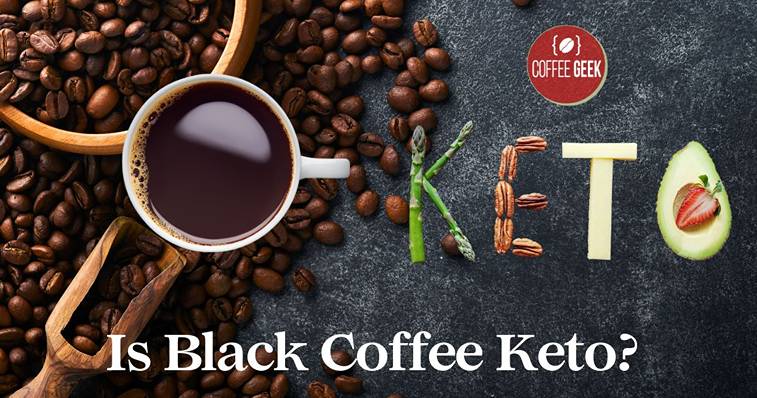When it comes to following a ketogenic diet, many people wonder if their morning cup of black coffee is allowed.
The good news is that black coffee is not only keto-friendly but may also come with several additional benefits.
This article will explore the connection between black coffee and the keto diet, and provide tips for making your coffee even more keto-friendly.
Maintaining ketosis, a state where your body burns fat for fuel, can be challenging with so many tempting treats and beverages around.
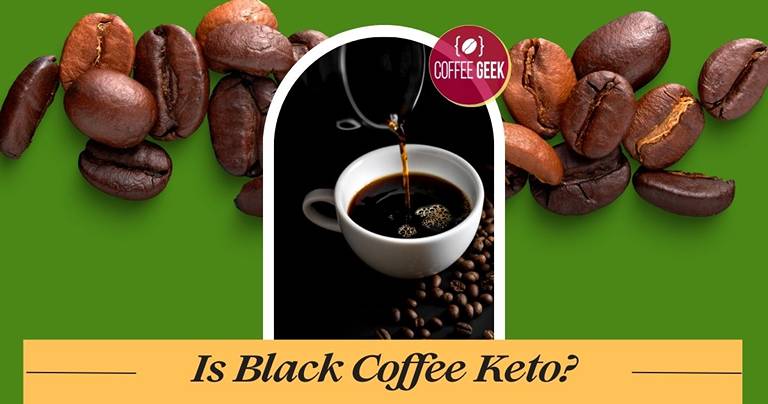
But fear not, your morning energizer is indeed on the keto-friendly list. Black coffee itself contains no carbs and no calories, making it compatible with a high-fat, low-carb diet like keto.
In addition, some studies have suggested that coffee consumption could help support weight loss and reduce the risk of developing type 2 diabetes.
Key Takeaways
Black coffee is keto-friendly and compatible with a high-fat, low-carb diet
Coffee consumption may support weight loss and reduce the risk of type 2 diabetes
Adding keto-friendly ingredients and practicing moderation can enhance the benefits of drinking coffee for a keto dieters
Black Coffee and Keto Diet
As someone following the ketogenic diet, I know it’s crucial to find beverages that suit my low-carb lifestyle.
Black coffee is not only keto-friendly but also offers several health benefits that align with my keto goals.
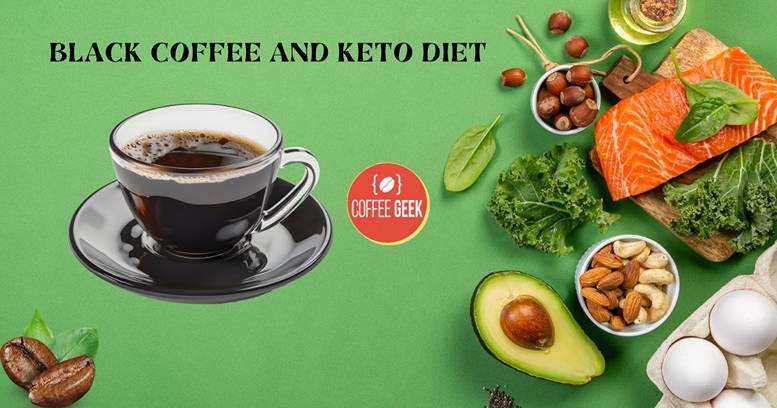
Caffeine and Ketosis
For me, drinking black coffee on a keto diet is beneficial due to its caffeine content.
As a natural stimulant, caffeine helps to release adrenaline, which in turn leads to the release of stored glucose from the liver.
This helps to support my body’s natural ketosis process, where it uses fat for fuel instead of carbohydrates.
It is important to note that we are talking about black coffee; adding milk, sugar, or cream would make it less keto-friendly.
Health Benefits of Black Coffee
Apart from its compatibility with the diet keto, black coffee also offers numerous health benefits to support my overall well-being.
Some of the advantages of including black coffee in my keto diet are:
Antioxidants: Black coffee is a rich source of antioxidants, which can help protect my body against oxidative stress and inflammation.
Improved mental focus: The caffeine in black coffee can increase alertness and improve cognitive function, which is essential for maintaining productivity and mental clarity while on a keto diet.
Aids in weight loss: Black coffee is known to increase the metabolic rate, which can help burn more calories and support my weight loss goals on this kind of diet.
Reduced risk of certain diseases: Studies have shown that regular black coffee consumption may help lower the risk of type 2 diabetes, Alzheimer’s, and Parkinson’s disease, which aligns with the long-term health benefits keto dieters.

Incorporating black coffee into my ketogenic diet not only helps me stay in ketosis but also provides valuable health benefits.
Providing I don’t add non-keto-friendly additives like sugar or milk, black coffee remains an excellent choice for maintaining my low-carb lifestyle.
Keto-Friendly Coffee Ingredients
As a keto enthusiast, I’m always looking for ways to make my coffee more keto-friendly without sacrificing taste. Below are some essential ingredients and options to consider when preparing a delicious keto coffee.
Butter and MCT Oil
One popular choice for the keto diet is adding grass-fed butter and MCT oil to the coffee. Grass-fed butter provides fats healthy, while MCT oil, derived from coconut oil, is easily absorbed and converted into energy.
When blended together with your coffee, these ingredients create a frothy, rich, and satisfying beverage.
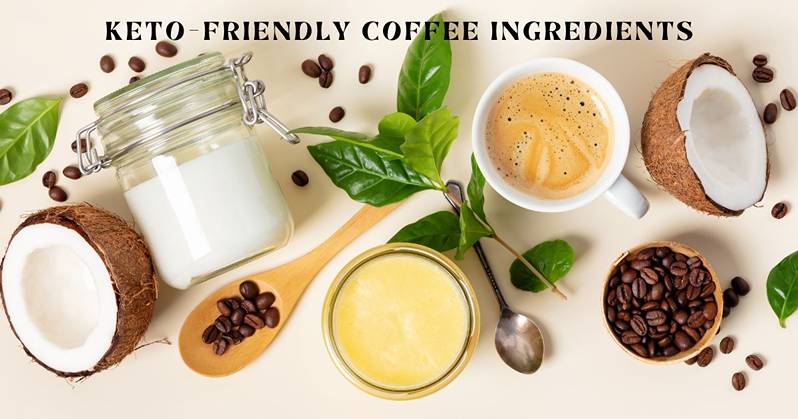
Alternative Keto Sweeteners
If you crave a sweet taste in your coffee, ditch the regular sugar and opt for keto-friendly sweeteners like stevia, monk fruit, erythritol, or allulose.
These alternatives provide the sweetness without raising your blood sugar levels or knocking you out of ketosis.
Here are a few popular keto sweeteners:
Stevia: a natural sweetener extracted from the leaves of the Stevia plant
Monk fruit: a calorie-free sweetener derived from a small melon-like fruit
Erythritol: a low-calorie sugar alcohol with a minimal impact on blood sugar
Allulose: a naturally occurring sugar with a fraction of the calories
Low-Carb Creamers
While traditional milk and cream can contain too many carbs for the keto diet, several low-carb creamers make great alternatives.
You can use heavy cream, almond milk, or coconut milk to maintain the thickness and creaminess you desire in your coffee without the added carbs.
For an extra flavor boost, consider adding sugar-free syrups, cinnamon, turmeric, or a pinch of salt. Many sugar-free syrups come in a variety of flavors and can easily be incorporated into your keto coffee routine.
Cinnamon and turmeric offer additional health benefits and can enhance the overall taste of your brew, while salt can help balance out the bitterness of the coffee.
By experimenting with these keto-friendly coffee ingredients, you can tailor your morning cup to your taste preferences while adhering to your ketogenic lifestyle.
Bulletproof Coffee on Keto
Recipe and Benefits
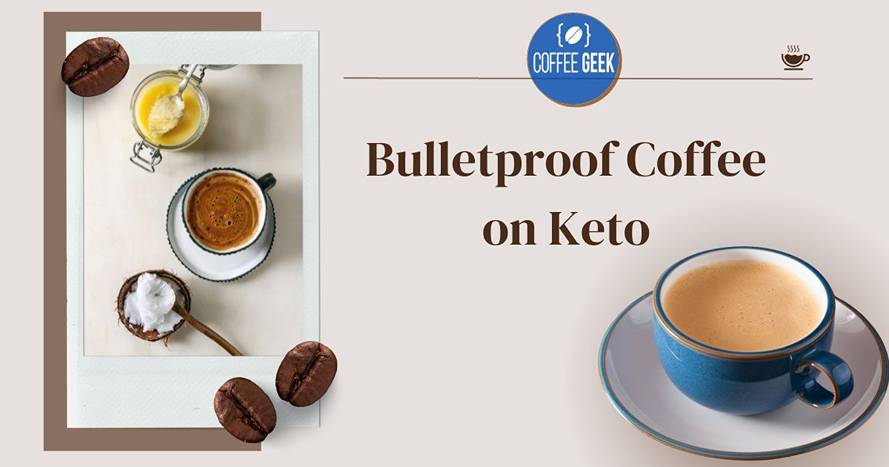
Bulletproof coffee is a popular drink among those following a diet keto. The recipe was created by Dave Asprey, the founder of the Bulletproof Diet, who wanted a coffee that provided sustainable energy levels and healthy fats.
Here’s how to make it:
1 cup freshly brewed hot black coffee
1-2 tablespoons butter grass-fed
1-2 tablespoons MCT oil or MCT oil powder
Combine these ingredients in a blender and blend until creamy. The result is a delicious, frothy coffee that gives me a quick energy boost and helps me stay full for longer periods.
The healthy fats, like grass-fed butter and MCT oil, in this coffee, support my ketogenic lifestyle by providing additional fat sources while limiting carbohydrates.
In addition to its energy-boosting properties, bulletproof coffee is known for its brain-enhancing effects, which can be attributed to the unique blend of caffeine and fats healthy.
This combination helps me stay focused and alert throughout the day, making it an essential part of my morning routine.
Bulletproof Coffee vs. Black Coffee
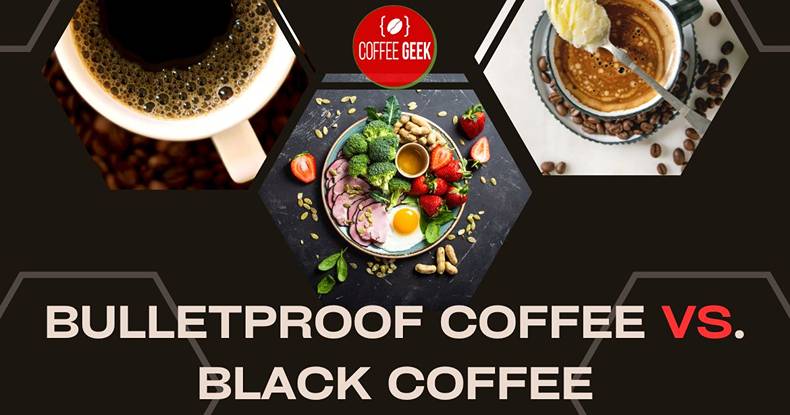
While both bulletproof coffee and black coffee can be enjoyed on a diet keto, there are some key differences between the two. One significant difference is the way they are consumed.
Bulletproof coffee serves as a high-fat meal replacement, providing my body with an instant source of energy and essential nutrients.
On the other hand, black coffee is a simple, zero-calorie beverage that offers the benefits of caffeine without additional ingredients.
As I follow a keto diet, choosing between bulletproof coffee and black coffee depends on my specific goals and preferences.
If I am looking for a meal replacement with added nutrients and a significant energy boost, I opt for bulletproof coffee. In contrast, if I am seeking a simple pick-me-up without extra calories, I prefer black coffee.
Both options have their advantages, but bulletproof coffee could be a more fitting choice for those seeking a coffee that aligns with their ketogenic lifestyle.
Impact on Weight Loss and Diabetes
As a fitness enthusiast, I’ve come across various diets and their respective effects to lose weight, burn fat and diabetes management.
The diet keto, known for its low-carb and high-fat approach, is no exception. Let me explain how black coffee plays a role in this diet, specifically regarding weight loss and diabetes.
Carbohydrates and Insulin Blood Sugar Levels
When following a diet keto like mine, we restrict carbohydrate intake, which is essential for controlling blood sugar levels and insulin sensitivity, particularly for individuals living with diabetes.
Drinking black coffee has minimal impact on carbs, with one cup containing only 2-5 calories, making it ideal for adhering to both a low-carb and a low-calorie diet.
As caffeine, the energizing component in coffee, doesn’t seem to affect blood sugar levels in most healthy adults, it’s generally safe to consume while on a ketogenic or low-carb diet.
However, it’s crucial to pay attention to added sugars found in flavored coffee drinks, which can counteract the potential benefits of black coffee by increasing insulin resistance – a big no-no for someone following a low-carb diet.
Nutrition and Energy Levels
As we’re all aware, maintaining a balanced and nutritious diet helps improve our overall health.
While black coffee doesn’t contain significant nutrients or protein, it’s rich in antioxidants such as polyphenols, which can have a positive impact on our health.
Coupled with a diet keto, drinking black coffee can contribute to an overall reduction in inflammation and oxidative stress.
Another advantage of black coffee consumption is its energizing effect. I’ve often realized that drinking black coffee helps me fight fatigue and lethargy, especially during early morning workout sessions.
This energy boost is particularly beneficial considering the strict dietary changes required when following a this kind of diet which can initially lead to a drop in energy levels.
To conclude, black coffee seems to complement a keto diet well – it’s low in carbs, promotes insulin sensitivity, and provides a stimulating energy boost.
However, monitoring your caffeine intake, as well as avoiding sugary additives or flavored coffee drinks, is essential. Remember that moderation is key and always consult with a professional when considering significant dietary changes.
Intermittent Fasting and Coffee
Fasting Window Considerations
When practicing intermittent fasting, the fasting window is an essential aspect to consider. During this time, it’s crucial to avoid consuming anything that may spike insulin levels or break the fast.
Black coffee, being a calorie-free beverage, can be consumed during the fasting window without breaking the fast, as long as no sugar, milk, or cream is added to it.
While plain black coffee is considered acceptable during the fasting period, it’s important to note that different individuals might have different reactions to coffee consumption.
For me, black coffee does not cause any issues during fasting; however, I recommend monitoring your body’s response to determine if it’s suitable for your intermittent fasting regimen.
Coffee and Insulin Sensitivity
One of the main benefits of intermittent fasting is its ability to improve insulin sensitivity.
Insulin is the hormone responsible for regulating our sugar levels, and better insulin sensitivity results in more efficient use of glucose in our body.
In general, coffee has been shown to have an impact on insulin sensitivity.
Although drinking black coffee while fasting may not directly affect insulin levels, it is known to increase cortisol levels in the body, which could potentially hamper insulin sensitivity if consumed in excessive amounts.
For me, limiting coffee intake to one or two cups per day has worked well in maintaining proper insulin sensitivity during intermittent fasting.
In conclusion, while black coffee can be a part of an intermittent fasting routine, it’s essential to monitor your body’s response. And for optimal results, keep the consumption within moderate limits.
Keto-Friendly Coffee Recipes
Keto Pumpkin Spice Latte
As a fan of pumpkin spice lattes, I’ve found a way to enjoy this classic drink on a keto diet. My keto pumpkin spice latte recipe is simple yet delicious.
Start by brewing a cup of black coffee, which naturally has 0 grams of total carbs. Then, add 1-2 tablespoons of grass-fed butter and 1-2 tablespoons of MCT oil.
To introduce that pumpkin spice flavor, include 1-2 tablespoons of pumpkin puree, a pinch of cinnamon, nutmeg, and ground cloves.
Blend everything together until you achieve a creamy and frothy consistency. Finally, top it with a dollop of unsweetened whipped cream, and enjoy this guilt-free treat.
Keto Coffee Espresso
For those who prefer a more intense coffee experience, keto espresso is an ideal choice.
I love making my keto espresso using freshly ground coffee beans and hot water, staying mindful that black coffee contains no carbs or calories.
For an extra boost of energy and fat, I add 1 tablespoon of grass-fed butter and 1 tablespoon of MCT oil or coconut oil into the mix.
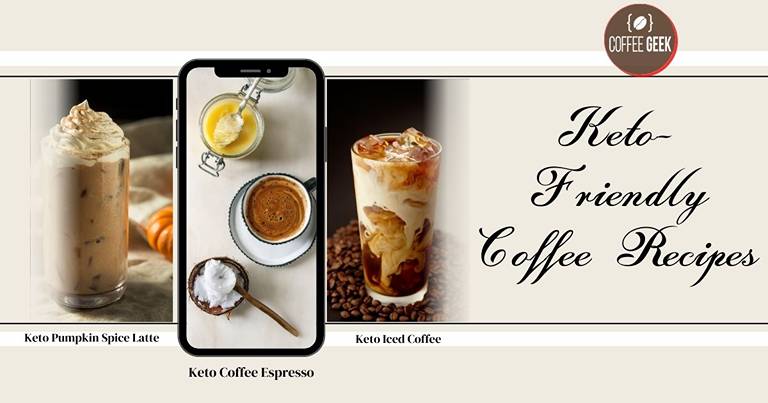
Using an espresso machine or a stovetop espresso maker, brew the espresso shot, and then blend in the fats until creamy and well combined.
This keto coffee espresso packs a punch, giving me the energy I need to start my day or get through an afternoon slump.
Keto Iced Coffee
On warm days, I enjoy cooling down with a refreshing keto coffee iced. To make this satisfying beverage, I start with freshly brewed black coffee, ensuring it’s sugar-free and low in carbs.
I then pour the coffee over a tall glass filled with ice cubes.
For added creaminess and healthy fats, mix in 1-2 tablespoons of heavy whipping cream or unsweetened almond milk. To sweeten the drink, use a keto-friendly sweetener like stevia or erythritol, adjusted to your taste.
Give the iced coffee a good stir, and indulge in this cool and invigorating keto coffee drink.
| Aspect | Is Black Coffee Keto-Friendly? |
|---|---|
| Calories | Minimal (negligible) |
| Carbohydrates | Extremely low (0-1 gram per cup) |
| Fat | Negligible |
| Protein | Negligible |
| Ketogenic Impact | Generally considered keto-friendly |
| Notes | Black coffee without added sugar or high-carb additives is compatible with a ketogenic diet. However, individual responses may vary. Check specific coffee brands for hidden sugars. |
Coffee Alternatives and Moderation
As someone following a keto diet, I understand the importance of finding suitable alternatives to black coffee that not only taste great, but also provide essential nutrients to keep our bodies energized and healthy.
In this section, I’ll introduce some herbal tea options and discuss the benefits of decaf coffee to help you make an informed decision.
Herbal Tea Options
One of my favorite alternatives to black coffee is herbal tea. There are many varieties to choose from, each offering their unique blend of antioxidants, vitamins, and minerals while being caffeine-free.
For instance, chamomile tea is known for its calming effects and rich source of antioxidants.

Another great option is green tea, which contains antioxidants known as catechins, known for their potential health benefits. Peppermint tea is also a popular choice, as it not only has a refreshing taste, but also aids digestion.
RGJ Bullet points for the herbal tea options.
Chamomile Tea: Calming effects, rich in antioxidants.
Green Tea: Contains catechins (antioxidants) for potential health benefits.
Peppermint Tea: Refreshing taste and aids digestion.
Decaf Coffee Benefits
For those of us who still want to enjoy the taste of coffee without the caffeine content, decaf coffee can be a great solution.
Decaf coffee is made by removing most of the caffeine from coffee beans through various methods.
In the decaffeination process, coffee beans retain most of their antioxidants and nutrients, allowing us to enjoy their health benefits without the stimulating effects of caffeine.
In fact, decaf coffee contains small amounts of vitamins and minerals such as magnesium, potassium, and B-vitamins, helping us stick to our keto diet while enjoying a warm cup of joe.
Moderation is key when it comes to enjoying coffee or its alternatives, even on a keto diet.
By being aware of our caffeine intake and making informed choices, we can continue to savor our favorite beverages while staying true to our dietary goals.
Frequently Asked Questions
Is black coffee keto-friendly?
Yes, black coffee is keto-friendly.
Plain black coffee has no significant amount of carbohydrates, which makes it suitable for the keto diet. Moreover, it can come with several health benefits that align with the goals of a keto diet.
How to make coffee suitable for a keto diet?
To make sure your coffee remains suitable for a keto diet, be mindful of the additions you make to your coffee. Instead of regular sugar, opt for low-glycemic natural sweeteners.
Additionally, use keto coffee creamer, quality fats, and keto-friendly protein powder. You can also consider adding adaptogens or spices to enhance flavor without adding carbs.
What are low-carb alternatives for coffee on keto?
Several alternatives for coffee on a keto diet are available, just ensure they are low in carbohydrates.
Options include herbal teas, such as green tea, or beverages that incorporate ingredients like unsweetened almond milk or coconut milk.
You can even try keto-friendly lattes or bulletproof coffee, which includes coconut oil or MCT oil.
Does black coffee affect ketosis or fasting?
Drinking black coffee in moderation should not adversely affect ketosis or fasting. In fact, it can boost alertness and focus, and even help with fat burning.
However, be cautious with the added ingredients, as they may introduce unwanted carbs and affect your ketosis.
How many carbs are in black coffee?
Black coffee naturally contains little to no carbohydrates. It has less than 1g of carbs per 8-ounce serving, making it a negligible source of carbs for a keto diet.
As long as you don’t add high-carb sweeteners or creamers, your black coffee will remain low in carbs.
What are the benefits of black coffee on a keto diet?
Black coffee can provide several benefits when incorporated into a keto diet. It can help you feel more alert, focused, and boost your energy levels.
Additionally, it can enhance fat burning and even aid in weight loss when consumed in moderation. Just be sure to keep your coffee plain black, avoiding any high-carb additions that can interfere with ketosis.

